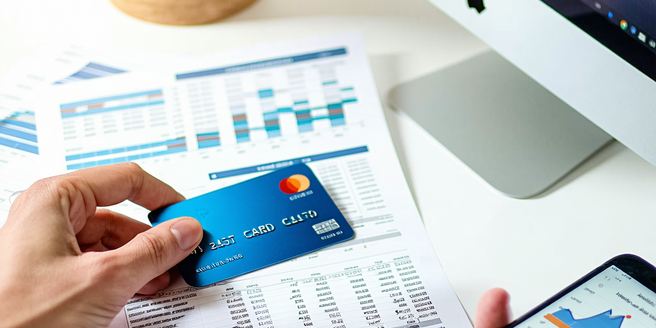
Understand Your Spending Habits
Recognizing how and where you spend your money is crucial to avoiding credit card debt. Start by tracking your expenses over a set period, such as a month. Identify patterns and pinpoint areas where you might be overspending. Are there daily coffee runs, dining out frequently, or impulsive online buys? By categorizing these expenses, you can distinguish between needs and wants. Changing your spending habits doesn’t mean giving up what you love but finding a balance. Analyzing your expenditures prepares you to make informed decisions and prioritize spending on necessities. Implementing changes gradually can lead to long-term benefits, making it easier to curtail unnecessary spending. Being conscious of your purchasing choices plays a major role in maintaining control over your finances and helps in preventing credit card debt accumulation.
Create and Stick to a Budget
Drafting a budget is foundational in managing your finances effectively and avoiding credit card debt. Begin by calculating your total monthly income and listing all essential expenses, such as rent, utilities, and groceries. Subtract these from your income to determine how much you can afford for discretionary spending. Allocate a portion of what is left to saving or paying down existing debts. Once your budget is set, the challenge is adhering to it. Regularly review and adjust your budget as circumstances change or if you identify surplus cash flow. It’s crucial to treat your budget as a living document, adaptable to life’s unpredictable nature. Staying disciplined ensures that your spending is controlled, allowing you to maintain financial stability and reduce reliance on credit cards.
Use Credit Cards Wisely
Credit cards can be valuable financial tools if used wisely. One key is to ensure you never spend beyond your means. Charge only what you can afford to pay off in full by the due date to avoid accumulating interest. Being strategic with your use involves taking advantage of rewards or points but not at the expense of spending unnecessarily. Set alerts to remind you of upcoming payments, or consider automatic payment setups to prevent late fees. Limiting the number of active cards you hold can also simplify financial management. By maintaining a lower credit utilization rate, your credit score can benefit as well. Responsible credit card use not only builds credit but protects you from falling into the trap of mounting debt caused by excessive or unmonitored spending.
Pay More Than the Minimum
Paying only the minimum amount due on your credit card can lead to prolonged debt and increased interest costs. To avoid this, aim to pay more than the minimum, even if it’s just a small amount over. This can significantly reduce the time and interest it takes to pay off your balance. Consider applying any extra cash, like bonuses or tax refunds, to your credit card payments. By contributing more, you are tackling the principal balance more aggressively, lowering the overall debt faster. Furthermore, making extra payments throughout the month, rather than waiting for the due date, can also reduce interest accrual. This approach helps in establishing a disciplined payment routine, aids in managing your debt more efficiently, and empowers you to take control over your financial health.
Avoid Impulse Purchases
Impulse purchases often lead to unnecessary debt and financial stress, making it crucial to develop strategies to avoid them. Start by creating a mandatory waiting period before making an unplanned purchase. This pause gives you time to evaluate if the purchase is truly necessary. Additionally, limit browsing on shopping websites or apps unless you are searching for something specific. Maintain a list of items you need and stick to it when shopping, both online and in stores. Unsubscribe from promotional emails that tempt you with sales or discounts. By reinforcing these habits, you better control your spending and prevent impulsive buys that could strain your budget. Being intentional with purchases helps in keeping your financial plan on track and reduces dependency on credit for unplanned expenses.
Keep Track of Your Debt Levels
Monitoring your debt levels is essential in managing finances effectively and preventing the snowballing of credit card balances. Regularly reviewing your statements and balances helps you remain aware of how much you owe. Utilize tools like apps or spreadsheets to log your debts, upcoming payments, and interest rates. Keeping this data organized allows you to detect any significant increases in your debt levels promptly. If you notice trends of rising debt, reassess your spending habits and budget accordingly. Keeping communication open with creditors can also provide options for better management, such as adjusted interest rates or payment plans. By actively keeping track, you maintain a clearer picture of your financial health and make informed decisions to prevent the escalation of debt, ensuring financial stability.
